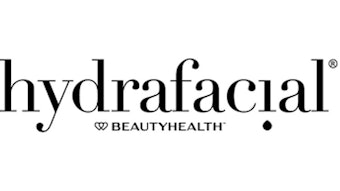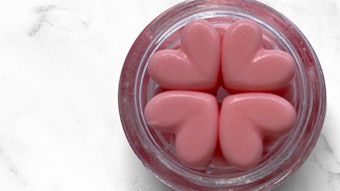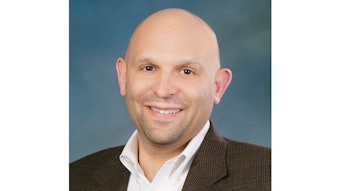Back to the June issue
With global supply issues putting pressure on cosmetics and personal care brands, the time is ripe to outsource the production of new SKUs. To stay ahead of the curve and cut costs, even mid- to large-sized brands are outsourcing. Whether a company wants a 500-unit run or a 500,000-unit run, contract manufacturers in the U.S. and abroad are available resources to keep brands up-to-date on market trends, regulatory changes, stability testing and, most of all, quick turnaround demands. GCI magazine interviewed four contract manufacturers about the state of the industry—from a 30-year veteran’s perspective to a newcomer’s vision.
GCI: Please share an overview of your business scope.
Paddy Spence: Levlad, LLC has been around for more than 30 years. We focus heavily on innovation, specifically R&D and formulation. We have a flexible facility and can do short and long runs of 5,000 to 500,000 units, typically, and we conduct stability testing for products in house.
Glenn Sandgren: Polysciences, Inc. is a full-service supplier offering a wide array of products including hair, skin and lip care in our FDA-compliant facility. We employ renowned natural and synthetic formulators and target business in 5,000- to 100,000-unit runs.
Bill Hunt: Surefil, LLC offers services to the home care, personal care and medical OTC industries. Our product fills range from 10 mL to one gallon. Surefil has extensive chemical compounding operations and very high-speed filling.
Vonda Simon: SeaCliff Beauty Packaging & Laboratories offers short and long runs. We specialize in naturals and organics, and we also do private label for big brands.
GCI: Do you specialize in any particular personal care products?
Paddy Spence: We focus on high value and prestige products. The key product areas in which we have expertise are acne treatment, antiaging skin care, salon hair care, SPF/tanning, and naturals and organics. We also offer expertise in regulatory compliance. Our partners rely on us to make sure their formulas meet regulatory requirements globally.
Glenn Sandgren: Polysciences is recognized as a leader in formulating all natural body care products. We have excellent shampoos, conditioners and fixatives. Our lotions and soaps are class leaders for quality and performance, and for our lip balms, glimmers and glosses, we use only the finest ingredients.
Bill Hunt: Surefil is an expert in hair care, skin care and oral care. This includes all forms of liquid shampoos, conditioners, hair colorants, hair gels, body washes, hand soaps, skin lotions, mouthwashes, sun tan lotions, etc.
Vonda Simon: We’re concentrating on color cosmetics first—lip balms, loose powders and lip gloss. It’s all done on-site. When we get our new facility, we’ll produce hair and skin care products.
GCI: How has your business adapted to the rising demand from beauty brands wanting to outsource production?
Paddy Spence: Speed to market is the biggest demand. The development cycle has shortened, so we’re a one-stop shop. Since we own Nature’s Gate and are a brand marketer, we have a consumer approach that other third parties do not.
Glenn Sandgren: Because of the myriad of global supply issues such as timing, country of origin, safety and contamination, and pressure to reduce inventory while improving or maintaining speed to market, we have had an increase and an interest in outsourcing from mid to large brands.
Bill Hunt: The business has grown rapidly. Outsourcing is recognized as a cost-effective way to manufacture products and to better utilize capital on marketing and growth initiatives, versus investing in brick-and-mortar manufacturing facilities. Surefil has invested heavily in superior chemical compounding facilities, bulk materials handling and high-speed packaging to serve the ever-increasing demands for higher quality and lower cost from brand marketing companies. New investments include vision systems, servo-driven fillers, cappers and labelers.
GCI: What has been stimulating the growth in outsourcing?
Glenn Sandgren: Companies seeking to cut costs, shrink new product introduction cycles and improve capitol efficiency.
Bill Hunt: Outsourcing is being driven by financial measures on public companies by financial markets. The financial markets are demanding higher revenue per employee for productivity, better return on capital and higher growth rates, while customers are demanding increased customer service through better logistics systems, increased speed through the supply chain and innovative products. The solution is to outsource manufacturing and concentrate on R&D for new products, better logistics systems, better packaging and, of course, better advertising.
GCI: What are the benefits of outsourcing?
Glenn Sandgren: The biggest benefit of outsourcing is that it allows customers to focus on what moves the product, sales and marketing. It also allows them to identify and quickly implement the latest technology and rapidly follow trends. Smaller companies can’t afford the wide array of skilled personnel and equipment required for product development and production. We can give them safe, innovative products using the best technologies in the shortest amount of time.
Bill Hunt: For start-ups, you get the experience of a major manufacturer and no capital investment. This is a no-brainer. For larger companies, [I refer to my] previous answers.
GCI: What challenges do contract manufacturers face in the market today?
Paddy Spence: The regulatory environment is always challenging. Regulations are being added more quickly now, which creates a challenge in formulation and reformulation, and rising ingredient costs are always a concern.
Glenn Sandgren: There are two key threats. One: We have always had to deal with [competitors] with little business sense and dangerous practices. They under-price or “over promise” product, which ultimately forces them to cut corners in nefarious ways or go out of business. Business Darwinism always fixes it in the end, but it hurts their customers and reputable competitors. Two: Global production and supply. We are extremely cautious about where we buy our raw materials. Many of our customers have come to us because they have had negative experiences with suppliers that provided products contaminated with heavy metals or mold.
Bill Hunt: The biggest threat to business is decreased consumer spending ability driven by high fuel costs and tax rates. This absorbs the consumer’s discretionary budget leading to lower unit volumes sold.
Vonda Simon: The challenge is finding raw material vendors that are as ethical as we are. As a distributor, we protect our clients from the vendors sometimes. Most companies want one specialty company who can do it all. We are completely service-oriented, and are not afraid to tell a client if we believe a product won’t do well in the market.
GCI: What gives you an edge over competitors in the market?
Paddy Spence: For us, familiarity with naturals and organics has given us a huge advantage as brands are looking into becoming green. The product segments we’ve chosen to focus on have been some of the biggest growth categories in personal care.
Glenn Sandgren: Passion, technology, reliability, flexibility and good customer service help give us the edge. Each year, we have experienced growth, and each year has been better than the last.
Bill Hunt: Surefil’s competitive advantage is based on high quality and high-speed filling, coupled with excellence in customer service, yielding a long-term sustainable cost advantage. Our biggest boom was in 2007. Our growth from 2006 to 2007 was a factor of four.
Vonda Simon: We offer paraben- and sulfate-free products, as well as naturals and organics.
GCI: What regions of the world are experiencing a growth in outsourcing facilities?
Glenn Sandgren: Mostly China, India and Eastern Europe. Our company has several facilities around the world, but with contract packaging, the risk/reward is not yet acceptable. Our customers require proven safe production in short lead times.
Paddy Spence: For commodity-type products, we see [growth in a number of regions], but for premium products like ours, there’s always a cachet in being produced in a particular region. For us, it’s the U.S.
Bill Hunt: All regions are seeing increases in contract manufacturing.
GCI: Why are these regions growing?
Glenn Sandgren: Cost reduction and a growing local market.
Bill Hunt: Customers are migrating to fillers in the U.S. for lower costs. The Surefil U.S. facility in Michigan is benefiting from being a low-cost facility. However, Canada will suffer from a strong Canadian dollar, and will see a reduction in contract activity.
GCI: Where is the market heading?
Paddy Spence: We’ll see shorter and shorter development cycles and more customized products to address specific niches—like men’s personal care, the expanding teen and ’tween market, and multiuse products. There’s a lot of interest in the baby care market. It was oversaturated, but we’ve heard from retailers that baby products are now being purchased by adults with sensitive skin, which is also a growing area.
Glenn Sandgren: Both bioactive and natural materials are the current market drivers. Many say the market is heading toward certified organic materials, but I don’t think that the customer understands naturals versus organics yet. Most of the market may not be willing to pay the premium that exists because of the limited supply of raw materials.
Bill Hunt: The current trends will continue with powdered products and solid products moving toward liquids. Body washes will continue to grow in popularity, as will new products like teeth-whitening dental washes and rinses.
Back to the June issue










